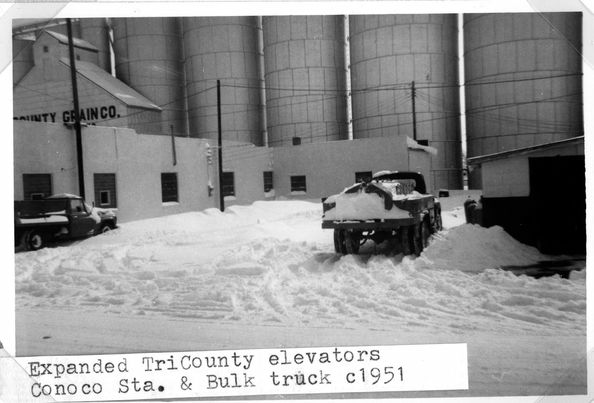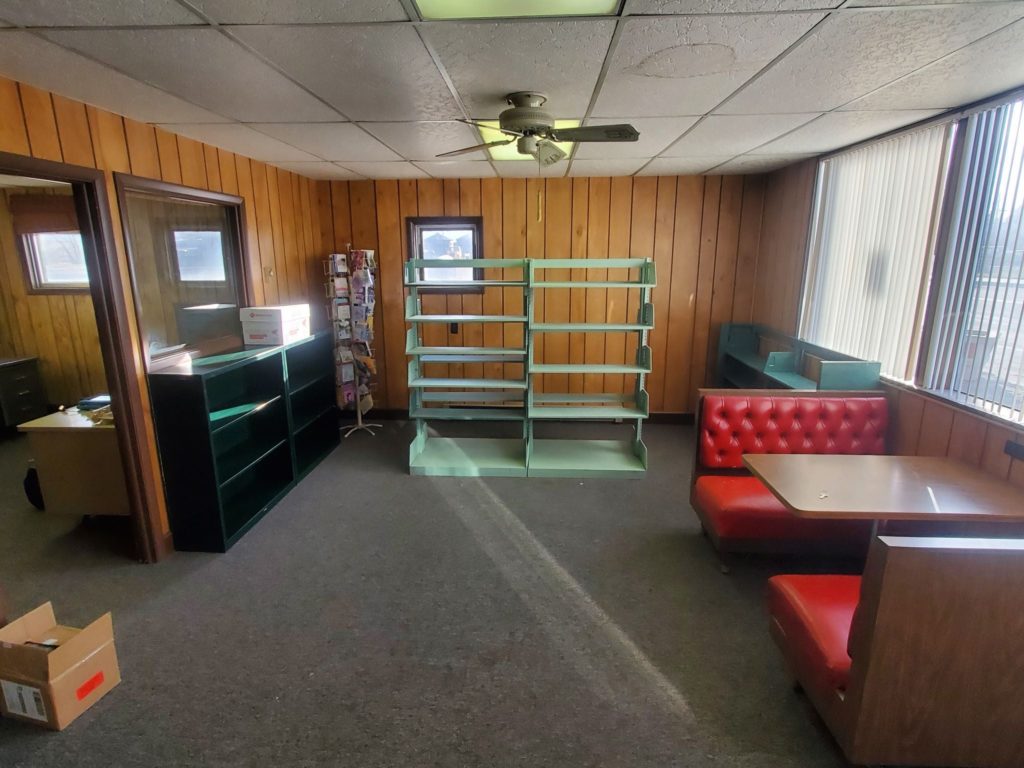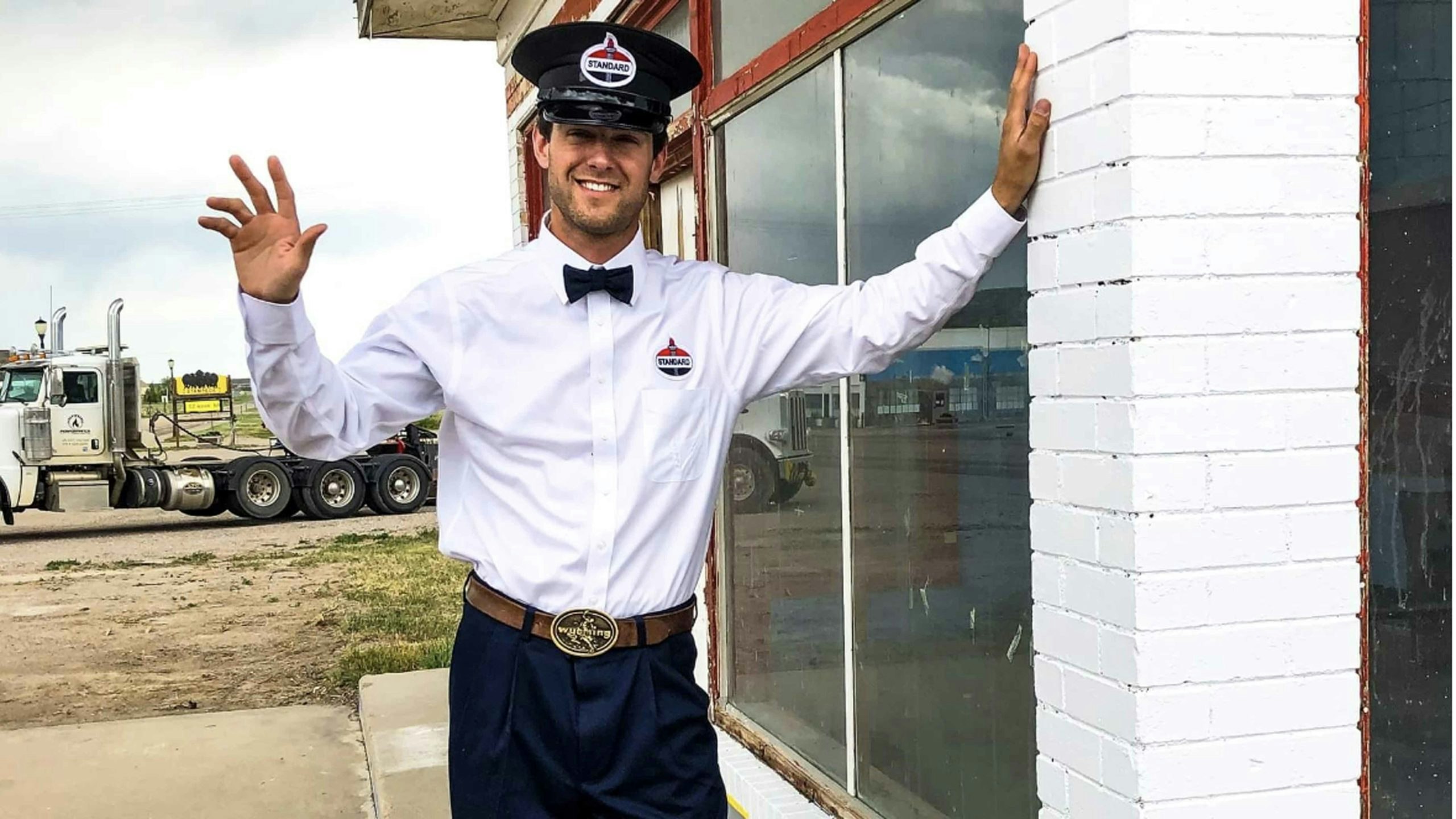*This is the first of three stories in this series
When Jill and Christian Winger opted to buy a neglected 60-plus acre farmstead south of Chugwater in 2008, they had no idea what they were getting themselves into.
The two had met in Cheyenne, where Christian is from. Jill is originally from northern Idaho and came to Wyoming to study equine studies at Laramie County Community College.
Fresh out of college and newly married, the couple had no interest in pursuing a conventional life in the suburbs. So, they moved out into the middle of nowhere, hoping to find their purpose.
For their first two years in Chugwater, the couple worked long hours and commuted for miles in either direction. Christian, an electrician, headed off for Cheyenne while Jill drove to Wheatland to work as a vet tech. On the weekends, they kept to themselves and worked on their home and farmstead.
When Jill got pregnant with their first child, she gave up her job. As a young wife and mother living in the middle of nowhere, those first couple of years were rough for her. She missed socializing and being around people.
This loneliness led Jill to start blogging about her life. Her audience began as five friends, but over time it slowly grew to include others like her who were living self-sufficient lives on small homesteads or farms.
“It was really slow,” she said, “and definitely not a ‘Build it and they will come situation.’ But I began to connect with other people across the country and world and realized there was a way to monetize (the blog) while solving problems.”


Today, years later, Jill is a best-selling cookbook author and has nearly 250,000 followers on her “Old Fashioned on Purpose” YouTube channel and podcast, previously called “Prairie Homestead.” She shares canning and ag tips, recipes and baking how-to’s as well as entertaining stories of raising three children and living on a working cattle ranch and homestead.
The family sells grass-fed, grass-finished beef and also just purchased and totally renovated the historic Chugwater Soda Fountain, which boasts the oldest working soda fountain in the state.




The iconic restaurant was a big investment, Jill admitted, and some people were frustrated by some of the updates, she said. But much of it was out of their hands, as the renovation grew when they realized they had to update big things like the septic system and floors.
She kept all the historic pieces from the original business – including Wendall, an elk harvested in Jackson Hole who has hung in the Soda Fountain since 1946.
In fact, a town ordinance expressly forbids Wendall from being moved from the restaurant.

Though they technically own the restaurant, Jill said that she and her husband see their role more as stewards.
“We might own it, but it’s not ours,” she said. “It belongs to the community. I love the history and charm of its golden era, and I didn’t want it to look like anywhere else.”
More than her successful brand and businesses, Jill just appreciates being part of the history and community in a town and community she completely loves.
“It’s my calling and here I am,” she said. “It’s a special community full of talented people. And you can’t beat the history. Cowboys, Steamboat, covered wagons and all the ranches. The history is raw.”
More so, this new way of life created a gateway to allow the couple to live purposefully while not becoming “robots in the rat race.”
Rise in Homesteading Philosophy
The Wingers are part of a rising trend among millennials who are leaving the cities to live a more agrarian, rural lifestyle with a focus on self-sufficiency and building strong communities.
Unlike their forbearers who were forced to make long, treacherous journeys across the plains and live with rudimentary basics, often miles away from their nearest neighbor, these new pioneers have the convenience of the internet and other modern technologies that allow them to tap into the past while earning a living and working the land.
And much like the Wingers, many of these newcomers have the resources to invest in communities like Chugwater as they help the communities through investments intended to promote the preservation of the history and communities they’ve come to love.
Josh Hopkins


Josh Hopkins is another of those newcomers who fell in love with the community and Town of Chugwater.
Hopkins grew up in Chadds Ford, Pennsylvania, which is also the hometown of artist Andrew Wyeth, whose realist paintings of the rural landscape and people left an indelible mark on the 31-year-old photographer and tech worker.
After college, Hopkins took a data analytics job that paid well and allowed him to travel. Wyoming was one of his first trips, which coincided with Cheyenne Frontier Days, where he said he got his first taste of the real west. He said he’d seen a rodeo back East, but nothing like the “Daddy of ‘Em All.”
“I’d never seen anything on this scale and the whole western town and climate was totally different,” he said.
That experience and subsequent loop through the state lit a spark in him, prompting him to eventually move to Cheyenne in 2019.
“The eastern plains of Wyoming stuck with me,” he said.
The rural landscape reminded him of the countryside Wyeth painted – minus the trees, which Hopkins said he doesn’t miss – and he appreciated the open landscape and rugged individualism of its people, particularly those in the ranching community.
Because he moved to Cheyenne in the middle of winter, Hopkins would take weekend road trips for as far as the weather would allow him, which typically was Chugwater. Despite its proximity to the capital city, Chugwater felt like traveling back in time. He loved it and began spending increasingly more time there.
He started hanging out with ranchers at the historic Soda Fountain and the Stampede Saloon, where he played guitar on Thursday nights at open mic night. He also started volunteering to work on area ranches and brandings, getting further ingrained in the local community, and today, he continues to work as a part-time ranch hand.
As far as cities go, Hopkins thinks Cheyenne is on the top of the list. But he wanted a quieter life. Last September, he bought a house and moved to Chugwater, and continued to work his computer job remotely.
Tri-County Mercantile
Before making the move, Hopkins inadvertently met two locals and Chugwater natives, Arden and Jesse Miller, who would become his close friends and business partners.
Together, the three have reopened the historic Tri-County Mercantile, which has been closed for decades.
Having a store in the community that supplies basic necessities and a range of ranching supplies from fencing materials to vaccines will be incredibly helpful to many residents, Hopkins said.




The store will also offer tourists – particularly city dwellers – an insight into the agrarian way of life when they come in and see salts and minerals on the shelves and cowboy ropes hanging on the walls.
“We want to add to that fabric of life,” he said.
The three eventually want to sell local eggs, meat and produce, some specialty items such as post cards and basic staples including toilet paper and paper towels that people are always running out of.
Hopkins also has plans for Chugwater’s former Conoco gas station and hopes to historically restore it as a working station, complete with an attendant in a bow tie and cap who not only fills the gas tank, but also washes the windshield.

Also on the Tri-County Mercantile property are grain bins and a grain elevator, but Hopkins isn’t quite sure if it makes economic sense to reopen those. But he said if they do remain, they won’t be presented as a “touristy” attraction, but will have some traditional use that benefits the community.
He added he has no plans of turning his adopted home into a tourist trap like Telluride or Jackson.
“What makes Chugwater Chugwater is not the bluffs or plains, but rather the people and the way that they live,” he said. “That’s our vision to keep it a fixture.”
The New Pioneers, Part Two: Keeping History Alive In Chugwater





